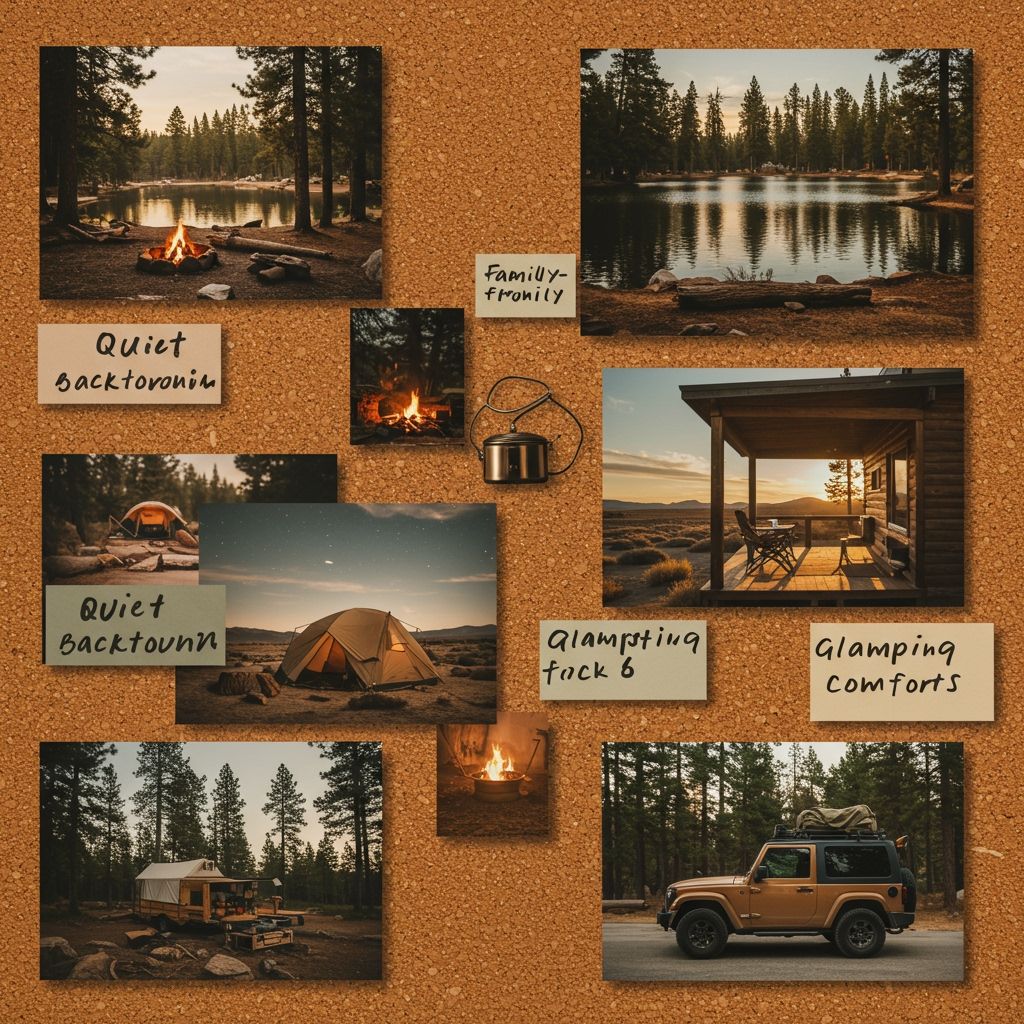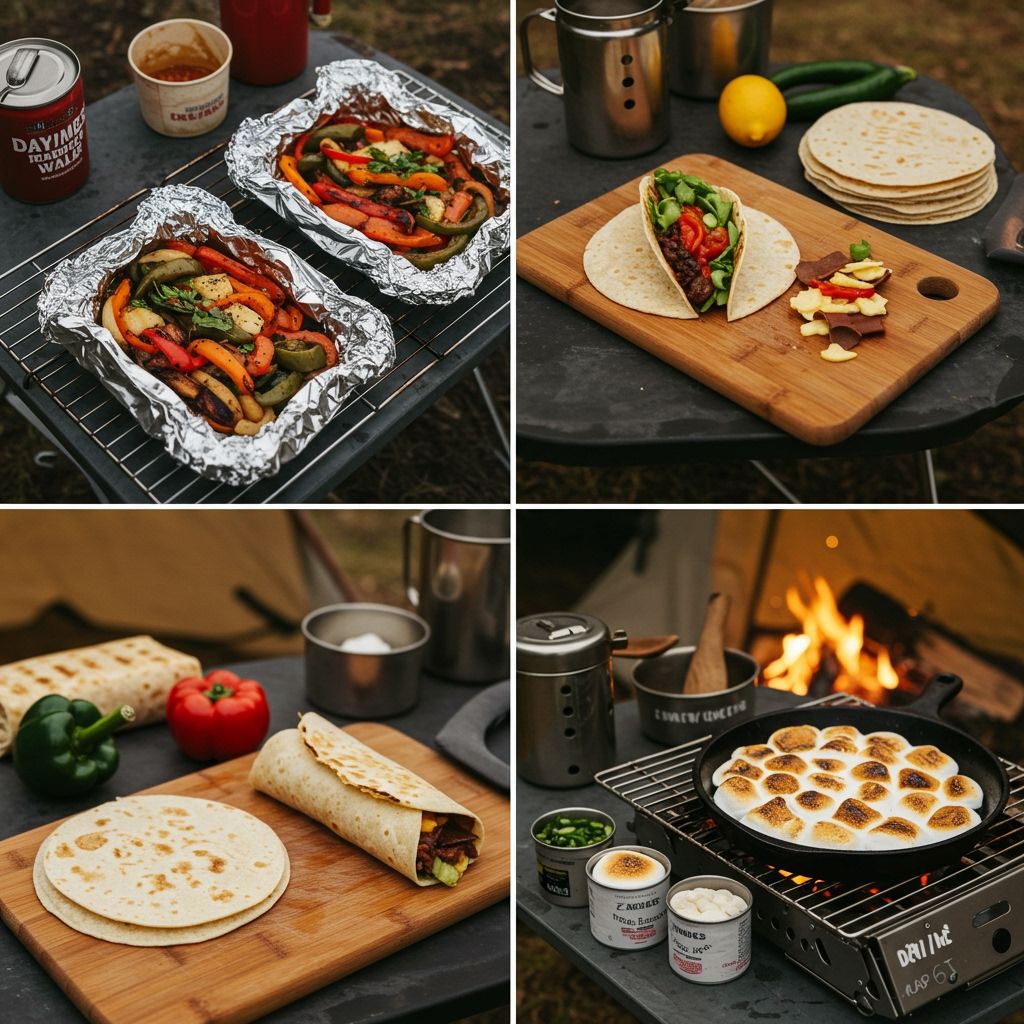Planning a camping trip might seem as simple as packing a tent and hitting the road. But if you’re aiming for more than a spontaneous, possibly soggy, weekend in the woods, you’ll want to approach your planning like a pro. That means thinking beyond checklists and conventional advice.
This guide offers a refreshingly different take on planning your first (or next) camping adventure. We’re diving into thoughtful strategies, real-life-tested ideas, and counterintuitive tips that elevate your trip from ordinary to unforgettable.
1. Choose Your Camping Style and Destination Thoughtfully
Most advice tells you to “pick a spot and go,” but what rarely gets mentioned is how your camping style defines your entire experience. Instead of deciding where first, decide how you want to experience nature.
Are you after the peace and quiet of a backcountry escape, or do you want the convenience of a car-accessible site? Will you be camping with kids, friends, pets, or going solo? Your answers should guide every other decision.
An overlooked idea? Create a camping mood board. Visualize the type of experience you want—images of pine forests, lakeside fires, mountain peaks. Let that vibe guide your location choices.
Also, don’t just settle for the first national park that comes to mind. Consider lesser-known state parks or conservation areas that often offer more solitude, fewer fees, and less competition for spots.
Pro Tip: Test your camping setup in your backyard or a local park first. It’s a low-risk way to figure out what works before you’re out in the wild.
2. Set Dates, But Stay Weather-Aware
Yes, reserving your campsite early is smart. But here’s what even seasoned campers sometimes overlook: microclimates and daylight patterns.
A site that looks perfect on paper might be miserable in July because of bugs or heat. Alternatively, an off-season trip in late September might reward you with solitude and golden foliage—as long as you’re prepared for chilly nights.
Go beyond just checking the 7-day forecast. Look at past trends, wind patterns, and how the sun moves through your specific site. Campers who understand the impact of these factors tend to sleep better, stay drier, and enjoy themselves far more.
Also, consider how the time of year affects your daylight hours. Shorter days mean you need to arrive and set up earlier. Longer days give you more flexibility but can impact how early the sun wakes you.
3. Build a Gear System, Not Just a Checklist
Don’t fall into the trap of treating your gear list like a shopping list. A smarter approach? Think in systems: sleep system, cook system, hydration system, and comfort system. Each system should work efficiently and with minimal redundancy.
Ask yourself: can one item serve multiple purposes?
- A headlamp with a red light setting is great for preserving night vision and doubles as camp ambiance lighting.
- A wool blanket can be a seat, an extra layer, or a picnic mat.
Also, stop overpacking “just in case” items. Instead, build your confidence in your systems. Practice packing and unpacking your bag. Time yourself. Can you set up your tent alone, in the dark, in 10 minutes?
Pro Tip: Use a duffle or tote for your common essentials, so you can grab and go anytime without repacking from scratch.
4. Plan Food Like a Chef, Not a Scout
Most people plan camping meals with a survival mindset. But food is one of the most joyful parts of camping — if you treat it that way.
Think beyond trail mix. Plan meals that offer comfort and a bit of indulgence. Simple, flavorful dishes like foil-packet fajitas, loaded breakfast burritos, or skillet s’mores elevate your entire experience.
A strategic grocery list makes prep smoother. Choose ingredients that can be repurposed:
- Tortillas: breakfast wraps, quesadillas, and even dessert wraps
- Pre-chopped veggies: easy to toss into any meal
- Olive oil, garlic, and salt: your MVP trio for flavor
Organize your food by meal and day in labeled bags or bins. This small touch can save time, reduce mess, and lower the risk of forgetting key ingredients.
5. Learn the Why Behind Camping Etiquette
Camping etiquette often feels like a list of things you shouldn’t do. But if you understand the why behind those rules, they become empowering rather than restrictive.
Take “Leave No Trace.” It’s not just about cleaning up after yourself—it’s about becoming a steward of the outdoors. When you pick up trash left behind by others or avoid creating new fire rings, you’re actively contributing to the health of a shared space.
Think of it this way: every time you camp, you’re not just enjoying the land—you’re leaving a legacy. Will the next camper find a peaceful, clean site because of you? That’s real impact.
Consider starting a personal ritual: a 5-minute site sweep before you leave. Not because you made a mess, but because you care.
6. Prioritize Comfort Without Overpacking
Packing more gear doesn’t always equal more comfort. In fact, it often means more clutter, more stress, and more chances to forget something important.
Instead, invest in key pieces that provide multi-layered comfort:
- A quality sleeping pad, not just for insulation, but for spinal support
- A camp chair you’ll actually want to sit in
- A breathable, weather-resistant outer shell that works in every season
Also, comfort isn’t just physical. Plan for mental comfort too. Bring a journal, a sketchbook, or a book that doesn’t require Wi-Fi. Make space for reflection. That’s part of what makes camping magical.
7. Make it Fun With Intentional Activities
A common mistake? Relying on the campsite to entertain you. While nature is inherently rich, your experience deepens with intentional engagement.
Try:
- Morning meditations by the fire
- Learning and practicing knots
- Nature journaling or watercolor painting
- Recording soundscapes of birds and breezes to relive later
Even games can be more creative than cards or cornhole. Try a scavenger hunt with things like “a leaf with five points” or “a rock that feels like glass.” It sparks curiosity and encourages mindful exploration.
Want a richer shared experience? Ask everyone to share a personal story around the campfire that they’ve never told before. Watch what happens.
Final Thought: Camping Isn’t About Escaping, It’s About Returning
We often treat camping as an escape from the stress of everyday life. But the truth? It’s a return. To slowness. To presence. To essentials.
The better you plan, the more you can relax. But don’t let perfect planning become a crutch. The real skill is adaptability. The real reward is connection—to nature, to others, to yourself.
So go ahead. Plan with intention. Pack with care. And once you’re out there, let go of expectations. That’s where the true magic begins.
Let your next camping trip be more than a weekend getaway. Let it be a reintroduction to the life you want to live.


